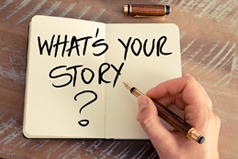Healthy Meetings
A CoDA meeting is a group of people who come together around their shared desire for healthy and loving relationships. The group uses the Twelve Steps and Twelve Traditions of Co-Dependents Anonymous as the basis for working toward recovery. They teach us to respect and honor one another. The same principles apply to helping our meeting be a healthy and safe place for recovery.
How do we create a healthy meeting? First, a CoDA meeting is created when people who identify as codependents get together and form a meeting. CoDA has the requirement of the reading of the four CoDA documents at a CoDA meeting: the CoDA Twelve Steps, the CoDA Twelve Traditions, the CoDA Preamble and the CoDA Welcome (regular or short version). The reading of these foundational documents is important for the health of a meeting. Please see the Starting a Meeting page in the ORG, especially the Meeting Handbook and the Fellowship Service Manual.
A CoDA meeting is a place to find recovery and fellowship as well as the sharing of experience, strength, and hope. A strong sense of acceptance and community makes a meeting attractive both to the newcomer and old timer. A CoDA meeting is much more than a place to sit and tell your troubles, it is a place to meet people like yourself and to learn from those who are different from you; a place to interact with people focused on learning to have healthy and loving relationships. In order for recovery to take place, the meeting must be a comfortable and safe place for people to heal and grow. The booklet,Building CoDA Community; Healthy Meetings Matter is a guide for fellowship members on how to build and sustain a healthy meeting. The following topics, gathered from the Fellowship Service Manual and Meeting Handbook, are some areas that support healthy meetings:
Group Conscience Process and Business Meetings (FSM, p.11): By polling our group conscience, we seek guidance from our Higher Power and make decisions affecting our groups, our service boards, and our committees. We call this “group conscience decision making.” This is sometimes new to people entering the program, and some have difficulty understanding and adapting to this process because of its “non-governing” style. It can be a lengthy process requiring patience and is used to make decisions at all levels of CoDA. A “group conscience” can be called during a meeting but is more often taken during business meetings for decision making. Anyone may ask for a group conscience at any time during a CoDA meeting, if and when immediate attention is needed to ensure the safety of an individual or the group, or to uphold the CoDA Traditions. Business Meetings are usually held monthly and officers can make reports and old and new business addressed. See the ORG Meeting Format section for a sample format.
Healthy Service Work: Several members having service positions in the group encourages a healthy meeting and the group conscience process. Jobs in CoDA are usually rotated to prevent burn out. Job rotation also supports the concept that each meeting depends on all who attend. Healthy meetings allow different volunteers perform each task, rotate positions regularly, and limit terms of service. In the beginning, people may be called to do service work in more than one job. This is okay on a temporary basis, but may cause burn out or resentments over the long term. More information about trusted servants and descriptions can be found in the Fellowship Service Manual.
Fellowship: Members are encouraged to carry on fellowship and recovery after the meeting as well as outside of the meeting. These may include:
- Sharing phone numbers and/or emails as a way to communicate in between meetings (See Tools of Recovery booklet for information and other suggestions).
- Going to coffee/tea/food after the meeting.
- Working with a committee to plan community events such as picnics, potlucks, campouts, or other local or regional CoDA events.
- Supporting one another’s recovery such as in carpooling to regional events and conferences.
Asking for guidance: Asking for guidance when it’s needed is one of the ways we practice our recovery. If at any time the group wants help or support (or has questions), there are many resources available:
- The CoDA Email Team can be contacted at [email protected] with general questions or to find out who may be able to assist you.
- Your local Intergroup, Voting Entity, or regional group. These groups can serve to assist in support for your group through sharing materials, ideas and resources. Additionally, if your group has a struggle/ dispute, they may have a regional dispute resolution committee or process to assist.
- The CoDA Issues Mediation Committee (IMC) can help resolve issues, but usually after groups have gone through the Dispute Resolution Process. Please see pages 14-16 of the Fellowship Service Manual.
Experience, Strength, and Hope from Members: What do you do to support and maintain a healthy CoDA meeting?
- Hold Group Consciences. For big decisions, these are often held in business meetings and usually announced one month in advance. Large decisions, such as changes to a meeting format or literature, can take time for group to decide and get adequate input. See the Fellowship Service Manual, p. 12-14, for a description and suggestions.
- Rotate service positions. One person should not do all positions and positions should rotate over time. Be willing to “let go” of a position and let another member step in, even you feel they are not as knowledgeable. Progress, not perfection, is the goal. Accepting that others may make mistakes and be messy is part of our recovery.
- Distribute meeting information (and meeting lists) and distribute them in doctors’ and therapists’ offices, and healthcare facilities.
- Make sure meeting information is accurate on CoDA World Website and Local websites.
- Welcome and guide Newcomers! (See the ORG Newcomer Support page)
- Distribute a Newcomer Packet with meeting list and other info.
- Consider having a set-up person or a greeter who welcomes newcomers at the beginning of a meeting.
- Some meetings have a “Newcomers Circle” or Newcomers Meeting (special meeting for newcomers to learn more about the program).
- Introduce Newcomers to literature and service work.
- Make it a priority to check-in with Newcomers after their first meetings.
- Keep a regular meeting time; start on time, end on time. Person setting up should arrive early to meet newcomers.
- Have literature at meetings to sell and/or give away.
- Use the Fellowship Service Manual (FSM) and Meeting Handbook for guidance for the group.
- When issues come up hold a group conscience and/or use the Dispute Resolution and/ or Community Problem Solving method (in the FSM).
- Conduct a Group Inventory to regularly reflect on your meeting.
- Consider different formats for meetings, e.g. workbook meetings, Step meeting, speaker meetings, topics, using the Patterns and Characteristics.
- Talk about the Tweleve Steps and model working your own program.
- Honor the 7th Tradition: pass the basket, pay rent, regularly send contributions to Intergroup and World Service levels.
- Encourage Sponsor/Sponsee relationships.
- Use CoDA Literature. Although the use of literature is group approved, utilizing only Conference approved literature is highly suggested. See the booklet “CoDA Approved Literature”
- Deal with conflicts in a healthy manner (use the suggested guidelines in the Fellowship Services Manual).
- Be inclusive in every way you can.
- Transparency- post minutes, post guidelines, share with the group any decisions made at the business meeting.
- Friendliness and comfort are a plus- When possible, have tea, food, regular anniversary celebrations and CoDA birthday celebrations for members. Celebrate recovery!
- Do service and encourage service-
- Have a Group Service Representative (GSR) who represents the group at your Intergroup or Voting Entity. The GSR can then share back to the group about CoDA regionally and worldwide.
- Be a sponsor and encourage sponsees/ newcomers to do early service work. There are many resources for sponsors and sponsees. Please see the ORGSponsorship page.
RESOURCES: Please click on the following areas for additional resources and materials, if available:
CoDA literature available through CoRE
|
Other CoDA resources
|
Suggestions
|
FEEDBACK & SUBMISSIONS FOR THIS PAGE: The Outreach Resource Guide (ORG) is a work in progress which depends on contributions from you, our fellowship members. Please submit suggestions and materials by going to the Submissions page for further instructions.




Recent Comments